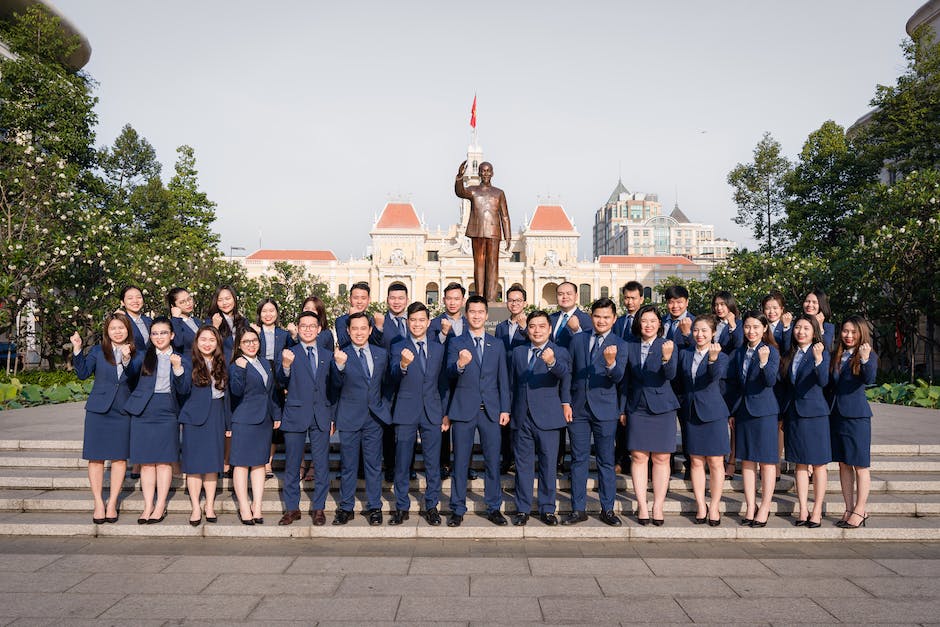Table of Contents
Embracing Uncertainty: The Power of Saying “I Don’t Know” – Embrace the unknown and unlock limitless possibilities.
Introduction
Embracing Uncertainty: The Power of Saying “I Don’t Know”
In a world that values certainty and expertise, the act of admitting “I don’t know” can be seen as a weakness or a lack of knowledge. However, embracing uncertainty and acknowledging our limitations can actually be a powerful tool for personal and intellectual growth. By recognizing that we don’t have all the answers, we open ourselves up to new possibilities, perspectives, and opportunities for learning. In this article, we will explore the importance of embracing uncertainty and the transformative power of saying “I don’t know.”
The Benefits of Embracing Uncertainty in Personal Growth

Embracing Uncertainty: The Power of Saying “I Don’t Know”
In our fast-paced and information-driven world, it can be challenging to admit when we don’t have all the answers. We are often expected to be knowledgeable and confident in our opinions, and saying “I don’t know” can feel like a sign of weakness. However, embracing uncertainty can actually be a powerful tool for personal growth. By acknowledging our limitations and being open to new possibilities, we can expand our horizons and develop a deeper understanding of ourselves and the world around us.
One of the key benefits of embracing uncertainty is the opportunity for learning and growth. When we admit that we don’t have all the answers, we open ourselves up to new ideas and perspectives. This can lead to a greater sense of curiosity and a willingness to explore different viewpoints. By being open to uncertainty, we can challenge our existing beliefs and expand our knowledge base. This can be particularly valuable in personal growth, as it allows us to question our assumptions and develop a more nuanced understanding of ourselves and our place in the world.
Embracing uncertainty also allows us to develop resilience and adaptability. Life is full of unexpected twists and turns, and being able to navigate uncertainty is a crucial skill. By acknowledging that we don’t have all the answers, we can approach challenges with a sense of curiosity and openness. This mindset allows us to be more flexible and adaptable in the face of change. Rather than being overwhelmed by uncertainty, we can embrace it as an opportunity for growth and development.
Furthermore, embracing uncertainty can help us cultivate a sense of humility. When we acknowledge that we don’t have all the answers, we recognize that there is always more to learn. This can be a humbling experience, as it reminds us that we are part of something much larger than ourselves. By embracing uncertainty, we can let go of the need to be right all the time and instead focus on continuous learning and improvement. This can lead to greater self-awareness and a deeper connection with others.
In addition, embracing uncertainty can foster creativity and innovation. When we are willing to admit that we don’t have all the answers, we create space for new ideas and possibilities to emerge. This can lead to breakthroughs and innovative solutions to problems. By embracing uncertainty, we can tap into our creative potential and explore new avenues for personal and professional growth.
Finally, embracing uncertainty can lead to a greater sense of peace and acceptance. When we let go of the need for certainty, we can find a sense of freedom and ease. We no longer feel the pressure to have all the answers or to control every aspect of our lives. Instead, we can embrace the unknown and trust in the process of life. This can lead to a greater sense of peace and contentment, as we learn to let go of the need for certainty and embrace the beauty of uncertainty.
In conclusion, embracing uncertainty can be a powerful tool for personal growth. By acknowledging our limitations and being open to new possibilities, we can expand our horizons and develop a deeper understanding of ourselves and the world around us. Embracing uncertainty allows us to learn and grow, develop resilience and adaptability, cultivate humility, foster creativity and innovation, and find a greater sense of peace and acceptance. So, the next time you find yourself unsure of the answer, embrace the power of saying “I don’t know” and see where it takes you.
How Saying I Don’t Know Can Improve Decision-Making Skills
Embracing Uncertainty: The Power of Saying “I Don’t Know”
In a world that values certainty and expertise, admitting that we don’t know something can be seen as a weakness. However, research suggests that embracing uncertainty and acknowledging our limitations can actually improve our decision-making skills. By saying “I don’t know,” we open ourselves up to new possibilities, foster a growth mindset, and enhance our ability to make informed choices.
One of the key benefits of saying “I don’t know” is that it allows us to recognize the limits of our knowledge. We live in an era of information overload, where it is impossible to be an expert in every field. By acknowledging what we don’t know, we can avoid the trap of overconfidence and make more accurate assessments of our abilities. This self-awareness is crucial for making informed decisions, as it prevents us from making hasty judgments based on incomplete or biased information.
Moreover, saying “I don’t know” can be a catalyst for learning and personal growth. When we admit our lack of knowledge, we create an opportunity to seek out new information and expand our understanding. This mindset shift from fixed to growth allows us to embrace challenges and view failures as learning experiences. By being open to new perspectives and ideas, we can continuously improve our decision-making skills and adapt to an ever-changing world.
Saying “I don’t know” also encourages collaboration and fosters a culture of curiosity. When we admit our limitations, we invite others to share their knowledge and expertise. This collaborative approach not only leads to better decision-making but also strengthens relationships and builds trust within teams and communities. By valuing diverse perspectives and recognizing that no one person has all the answers, we create an environment that encourages innovation and creativity.
Furthermore, embracing uncertainty can help us make more ethical decisions. When faced with complex moral dilemmas, it is often tempting to rely on our preconceived notions or societal norms. However, by acknowledging that we don’t have all the answers, we become more open to considering alternative viewpoints and exploring the potential consequences of our actions. This humility and willingness to question our own beliefs can lead to more thoughtful and compassionate decision-making, ultimately benefiting both ourselves and those around us.
While saying “I don’t know” may initially feel uncomfortable, it is a powerful tool for improving decision-making skills. By recognizing the limits of our knowledge, we can make more accurate assessments of our abilities and avoid overconfidence. Embracing uncertainty also fosters a growth mindset, encouraging continuous learning and personal growth. Collaboration and curiosity are enhanced when we admit our limitations, leading to better decision-making and stronger relationships. Finally, embracing uncertainty can help us make more ethical decisions by challenging our preconceived notions and considering alternative viewpoints.
In conclusion, saying “I don’t know” is not a sign of weakness but rather a strength. By embracing uncertainty, we can improve our decision-making skills, foster personal growth, and create a more inclusive and ethical society. So, let us embrace the power of saying “I don’t know” and unlock the potential for growth and learning that lies within us all.
Embracing Uncertainty: A Key to Building Resilience
Embracing Uncertainty: The Power of Saying “I Don’t Know”
In a world that values certainty and expertise, admitting that we don’t know something can be seen as a weakness. However, embracing uncertainty and acknowledging our limitations can actually be a key to building resilience. Research has shown that being comfortable with not having all the answers can lead to personal growth, improved decision-making, and increased adaptability.
One of the main reasons why embracing uncertainty is important is that it allows us to be open to new possibilities and ideas. When we are willing to admit that we don’t know something, we create space for learning and growth. This mindset encourages curiosity and a willingness to explore different perspectives. By acknowledging our limitations, we become more receptive to new information and are better equipped to make informed decisions.
Furthermore, embracing uncertainty can lead to improved decision-making. When we are aware of our own limitations, we are more likely to seek out diverse opinions and expertise. This can help us make more well-rounded decisions and avoid the pitfalls of overconfidence. Research has shown that diverse teams, where individuals are comfortable saying “I don’t know,” are more effective at problem-solving and innovation. By embracing uncertainty, we can tap into the collective wisdom of others and make better choices.
In addition, embracing uncertainty can increase our adaptability. Life is full of unexpected twists and turns, and being able to navigate uncertainty is a valuable skill. When we are comfortable with not having all the answers, we are better prepared to handle unexpected challenges and setbacks. This flexibility allows us to adjust our plans and strategies as needed, increasing our chances of success. By embracing uncertainty, we become more resilient and better equipped to handle whatever comes our way.
It is important to note that embracing uncertainty does not mean giving up on seeking knowledge or expertise. It simply means recognizing that there are limits to what we can know and being open to the possibility of being wrong. It is a mindset that values learning and growth over the need to always be right. By acknowledging our own limitations, we create an environment that encourages continuous learning and improvement.
So how can we embrace uncertainty in our own lives? One way is to practice humility. Recognize that no one has all the answers and that it is okay to admit when we don’t know something. This can be particularly challenging in professional settings where expertise is highly valued, but it is important to remember that true expertise includes an understanding of one’s own limitations.
Another way to embrace uncertainty is to cultivate a growth mindset. Instead of seeing mistakes or failures as signs of incompetence, view them as opportunities for learning and growth. Embrace the idea that not knowing something is simply a starting point for further exploration and discovery.
In conclusion, embracing uncertainty is a key to building resilience. By acknowledging our limitations and being comfortable with not having all the answers, we open ourselves up to new possibilities, improve our decision-making, and increase our adaptability. Embracing uncertainty is not a sign of weakness, but rather a sign of strength and a commitment to continuous learning and growth. So let’s embrace the power of saying “I don’t know” and unlock our full potential.
The Role of Uncertainty in Fostering Creativity and Innovation
Embracing Uncertainty: The Power of Saying “I Don’t Know”
Uncertainty is often seen as something to be avoided, a state of mind that makes us uncomfortable and anxious. We are conditioned to believe that having all the answers is a sign of intelligence and competence. However, research suggests that embracing uncertainty can actually be a powerful tool in fostering creativity and innovation.
In a world that is constantly changing and evolving, it is impossible to have all the answers. The ability to acknowledge and accept this fact is crucial in order to adapt and thrive in uncertain situations. Saying “I don’t know” can be liberating, as it opens up the possibility for new ideas and perspectives to emerge.
When we admit that we don’t have all the answers, we create space for curiosity and exploration. This mindset allows us to ask questions and seek out new information, which can lead to breakthroughs and innovative solutions. By embracing uncertainty, we become more open to different possibilities and are willing to take risks in order to find the answers we seek.
Uncertainty also encourages collaboration and teamwork. When we acknowledge that we don’t have all the answers, we are more likely to seek out the expertise and insights of others. This collaborative approach can lead to a diversity of ideas and perspectives, which is essential for creativity and innovation to flourish. By embracing uncertainty, we create an environment where everyone’s contributions are valued and respected.
Furthermore, uncertainty can be a catalyst for personal growth and development. When we are faced with uncertainty, we are forced to step outside of our comfort zones and confront our fears. This can be a challenging and uncomfortable process, but it is through these experiences that we learn and grow. By embracing uncertainty, we become more resilient and adaptable, qualities that are essential in today’s rapidly changing world.
It is important to note that embracing uncertainty does not mean giving up on finding answers or seeking out knowledge. Rather, it is about recognizing the limitations of our current knowledge and being open to the possibility of new information and perspectives. It is about being comfortable with the unknown and being willing to explore and experiment in order to find the answers we seek.
In conclusion, embracing uncertainty is a powerful tool in fostering creativity and innovation. By acknowledging that we don’t have all the answers, we create space for curiosity, collaboration, and personal growth. Saying “I don’t know” can be liberating, as it opens up the possibility for new ideas and perspectives to emerge. In a world that is constantly changing and evolving, the ability to embrace uncertainty is essential in order to adapt and thrive. So, the next time you find yourself faced with uncertainty, embrace it. Say “I don’t know” and see where it takes you.
Q&A
1. What is the concept of embracing uncertainty?
Embracing uncertainty is the act of acknowledging and accepting that there are things we do not know or cannot predict with certainty.
2. Why is it important to say “I don’t know”?
Saying “I don’t know” allows for honesty and humility, fostering a growth mindset and openness to learning.
3. How does embracing uncertainty empower individuals?
Embracing uncertainty empowers individuals by freeing them from the pressure of having all the answers, encouraging curiosity, and promoting adaptability.
4. What are some practical ways to embrace uncertainty?
Practical ways to embrace uncertainty include seeking diverse perspectives, being open to new ideas, experimenting with different approaches, and embracing failure as a learning opportunity.
Conclusion
In conclusion, embracing uncertainty and acknowledging the power of saying “I don’t know” can be a valuable mindset. It allows individuals to recognize the limits of their knowledge, encourages open-mindedness, and fosters a willingness to learn and explore new possibilities. By accepting uncertainty, we can cultivate humility, promote intellectual growth, and make more informed decisions.





